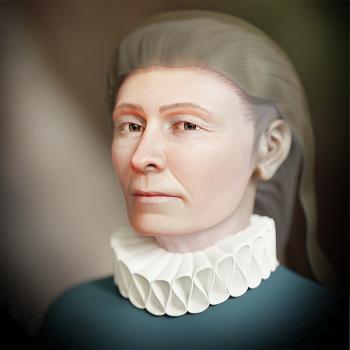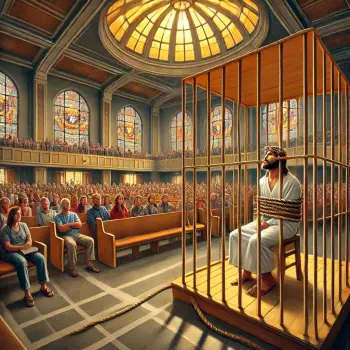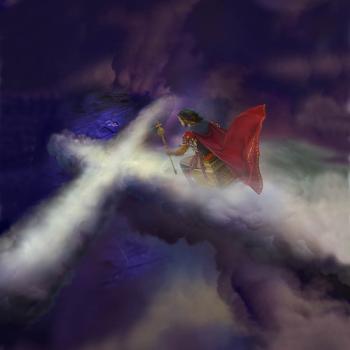In last week's column I made the strongest case I could for the idea that we choose our religious beliefs, and for its corollary, that God removes evidence of his presence in order to make that choice entirely free. This week I want to make a case against those ideas. So, to begin: are religious beliefs chosen?
We could approach the question neurologically, asking whether the human mind is capable of free moral choice. We could approach it philosophically, asking whether free will is a coherent moral category; we could ask, in other words, if meaningful choice is possible at all—choice of belief or of any other personal commitment. Or we could approach the question epistemologically, suggesting, for instance, that questions of fact cannot be decided by choice whereas questions of value may. The question then becomes whether religion makes claims of fact or value.
If you're a faithful reader of Salt & Seed, you may have noticed that this set of questions is something of an intellectual obsession of mine. And yet I want to set them aside here, not only because what we can say about them is both provisional and controversial, but because I don't think they're really central to the nature of belief. What is central is our philosophical treatment of choice, whether we treat it as a privileged category to be celebrated, or whether we don't. For reasons I'll come back to, I want to try putting choice aside and figuring out what belief would look like without it.
I can imagine two different ways of reframing belief away from choice, a triumph of the will, and toward a "fortunate failure" of human will. We might on the one hand think of faith not as a moral victory over uncertainty but rather as an encounter with uncertainty itself, which is to say an encounter with the limits of our own capacity to comprehend or control the world. When we encounter church doctrines or practices that we fail to understand or can't justify, or when we taste suffering in our own lives or the lives of those we love, we find ourselves puzzled by God's will. These moments of hesitation become the personal occasions of faith, and they originatenot in our capacity to choose, in our strength of will, but on the contrary in our own limitations of mind, in our insufficiency to comprehend or our present inability to decide. Faith begins at the moment we say, "I don't understand." Belief here is not first a choice but choice's opposite, born as it is in a moment of spiritual hesitation or aporia; not first a triumph of the moral mind, but its fortunate failure.
We might, on the other hand, think of religious belief as a kind of spiritual knowledge. In this way of thinking, belief is spiritual knowledge, because it can't always or can't yet be corroborated by empirical means, but also spiritual knowledge, because it is of the same basic species as empirical knowledge. It is potentially knowable, even if it is not yet known. This notion of belief is one that has deep roots in LDS scripture. Joseph Smith uses the language of knowability, for instance, to describe the sublime revelatory experience recorded in D&C 76: "By the power of the Spirit our eyes were opened and our understandings were enlightened, so as to see and understand the things of God . . . To [those who love him] he grants this privilege of seeing and knowing for themselves."
If religious belief is of the same substance as empirical knowledge, and I think one can make a solid case that it is or can be, it must be equally subject to what I called the "tyranny of fact" in last week's column: the inescapability of syllogism, the inevitability of the conclusion. We don't consciously choose our religious beliefs any more than we choose the color of the sky overhead; we don't because we can't. Alice's exchange with the Queen of Hearts comes to mind:





